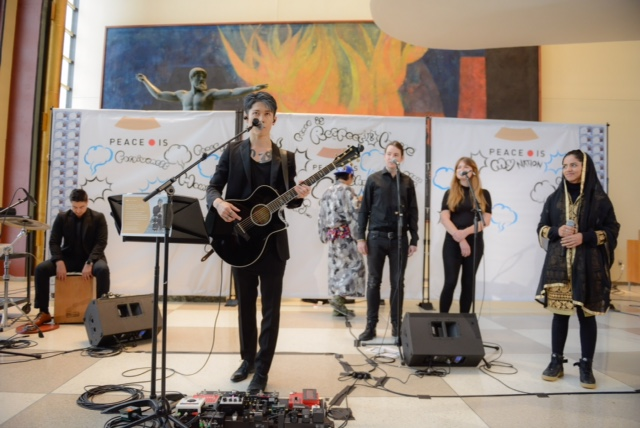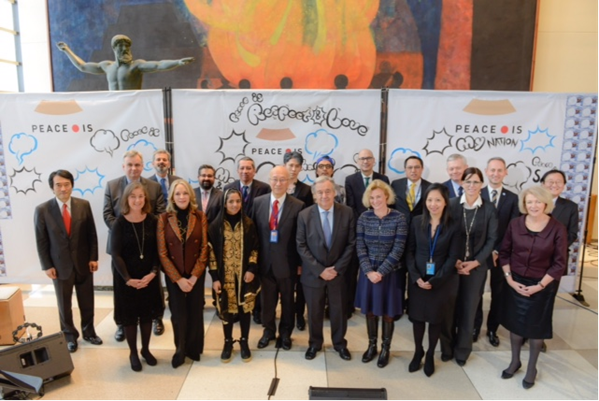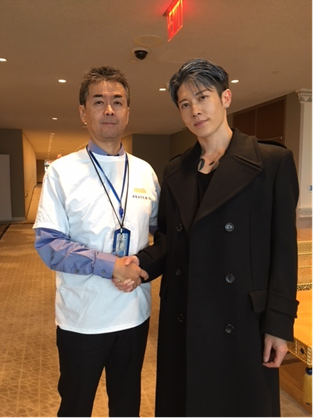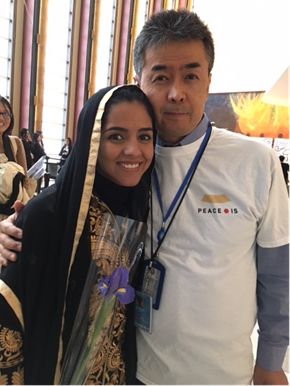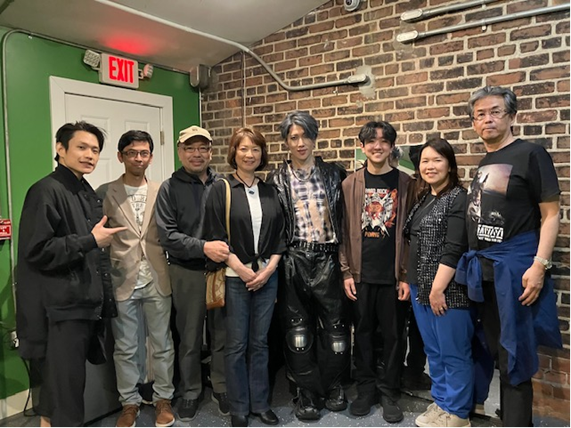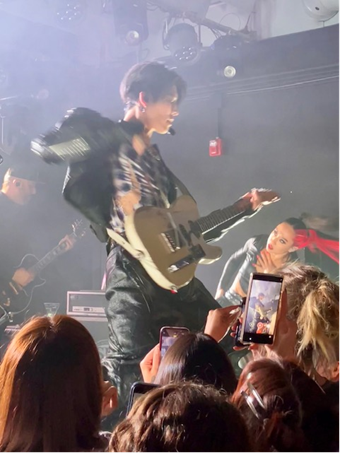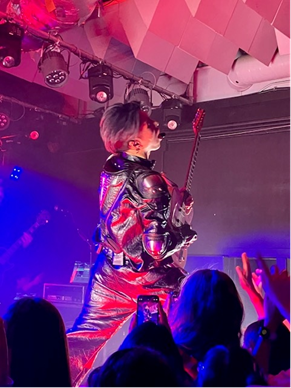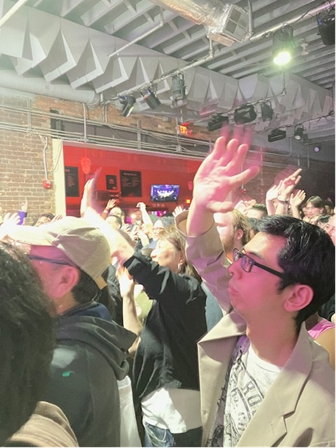Through the Eyes of the Consul General of Japan in Detroit
2025/5/21
Through the Eyes of the Consul General of Japan in Detroit
Vol.5
The Revival of Detroit: Expressed Through MIYAVI's "Acceptance"
Vol.5
The Revival of Detroit: Expressed Through MIYAVI's "Acceptance"
May 21, 2025
Hajime Jimmy Kishimori
Consul General of Japan in Detroit
Hajime Jimmy Kishimori
Consul General of Japan in Detroit
Have you ever heard of the rock guitarist called MIYAVI?
He is a technician known for his unique guitar technique called “finger-slapping style.”
He performed in the NHK New Year's Eve music program Kōhaku Uta Gassen as a member of The Last Rockstars, a band formed with Yoshiki of X Japan.
He also portrayed Byakuya Kuchiki in the live-action adaptation of the manga Bleach.
People may have various images of him, but for me, MIYAVI is a fellow advocate of UNHCR (the United Nations High Commissioner for Refugees).
In January 2018, MIYAVI performed at the United Nations with Sonita Alizada, a female Afghan refugee rapper, and deeply moved UN Secretary-General António Guterres.
Behind the scenes, however, there was considerable opposition from senior officials at Japan’s Ministry of Foreign Affairs to inviting MIYAVI to the UN.
It wasn’t just because of his tattoos—there were concerns about a film he had appeared in years earlier, and many had not forgotten it.
The person who ultimately gave the green light was Ambassador Bessho, then Japan’s Permanent Representative to the UN.
He said to me, “I, too, deeply respect Sadako Ogata, just as you do. Since Mr. MIYAVI was appointed as a UNHCR Goodwill Ambassador, I support your desire to invite him to the UN.”
At that moment, I thought to myself: someday I want to become a boss like Ambassador Bessho.
Back to MIYAVI, On May 8 this year, he performed at El Club in Detroit.
As always, he captivated the audience with an energy that made it hard to believe he’s a father of three children.
To be honest, I don’t really understand the appeal of rock music, but I believe MIYAVI’s music is filled with empathy for "The Others."
When I once asked him at the UN what peace means to him, he instantly replied, “Acceptance.”
He smiled and said, “Refugees are just like us—the only difference is they were forced to leave their homes.”
At El Club, MIYAVI embraced everyone in the audience just as they were.
While he was on a North American tour traveling from Chicago to Washington, D.C., our reunion was brief.
But JBSD Executive Director Kawase, who was with me, invited MIYAVI to the 2027 New Year’s Reception, and MIYAVI instantly replied with a smile, “Sounds good.”
I know MIYAVI said that as a compliment, but I am now seriously considering inviting MIYAVI to Detroit again in two years.
The year of 2027 will mark the 100th anniversary of the Detroit Institute of Arts and the 10th anniversary of its Japanese Gallery, and we are planning to celebrate “Japan Year” together with Director Salvador Salort-Pons and Mr. Omistu.
The story of Detroit’s beautiful revival—from a city once plagued by crime, poverty, and economic stagnation—is still largely unknown outside the Midwest.
Today’s Detroit accepts Japanese cars, Japanese people, and Japanese culture just as they are—just as MIYAVI embraces refugees as ordinary human beings.
To tell the story of Detroit’s rebirth from a Japanese perspective, I believe MIYAVI’s message of "Acceptance" is the perfect expression.
If you feel the same, please contact the Consulate General. Let’s prepare together.
